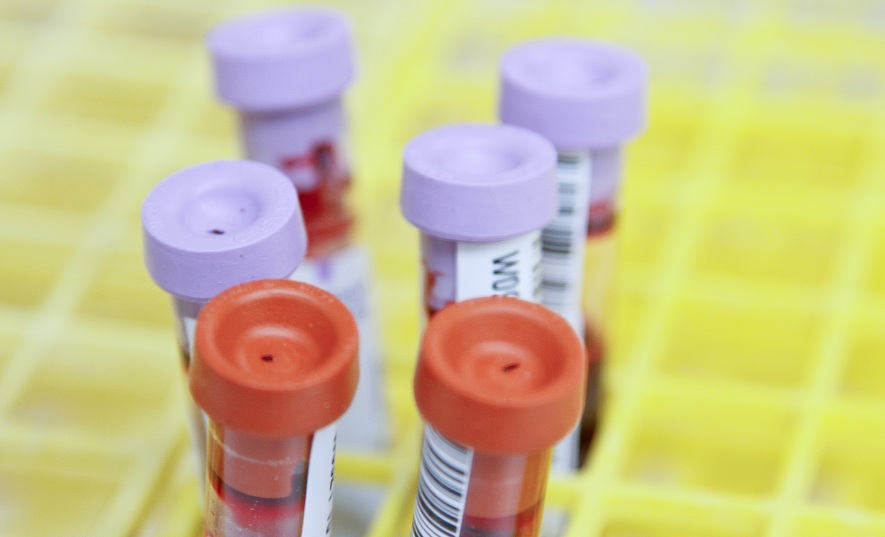March 08, 2021: “A major new collaborative effort, the Global Breast Cancer Initiative, is being introduced by the World Health Organization, with the objective of reducing global breast cancer mortality by 2.5% per year until 2040, thereby averting an estimated 2.5 million deaths.
In recognition of International Women’s Day, WHO is hosting an advocacy event “Hearing the call of women with breast cancer” during which the new Initiative will be presented to the global cancer community.
“Although we have seen substantive progress in reducing breast cancer mortality in many high-income countries during the last two decades, little progress has been made in low-and middle-income countries,” said Dr Bente Mikkelsen, Director of the Department of Noncommunicable Diseases at WHO.
“The higher mortality in these lower-income countries is a result of late-stage diagnosis and inadequate access to quality care. Together, we can address this unacceptable inequity.”
Survival rates in high-income countries far exceed those in low-income countries
Breast cancer survival five years after diagnosis now exceeds 80% in most high-income countries, compared with 66% in India and just 40% in South Africa.
The premature deaths and high out-of-pocket expenditure that arise when breast cancer services are unavailable or unaffordable result in social disruption, impoverishment, family instability and orphaned children and also threaten economic growth.
The importance of addressing this situation has become all the more urgent given that breast cancer has now overtaken lung cancer as the world’s mostly commonly-diagnosed cancer, and is responsible for one in six of all cancer deaths among women, according to statistics released by the International Agency for Research on Cancer (IARC) in December 2020.
The establishment of WHO’s new Global Breast Cancer Initiative follows a steady escalation in the recognition of breast cancer as a public health priority during the last decades.
Through the Initiative, WHO, working in unison with other UN agencies and partner organizations, will provide guidance to governments on how to strengthen systems for diagnosing and treating breast cancer, which in turn is expected to lead to improved capacities to manage other types of cancer.
Three pillars: health promotion, timely diagnosis and comprehensive treatment and supportive care
“Global partners, experts and other organizations will be convened through the Initiative to map existing activities, develop roadmaps, and establish multisectoral working groups to address health promotion and early detection, timely breast cancer diagnosis, and comprehensive breast cancer treatment and supportive care,” said Dr Ben Anderson, leading the work on the new Initiative at WHO.
“The demand for a global approach, that brings together the best expertise on breast cancer control from around the world, is high, as is the excitement about what can be achieved.”
Health promotion, the first pillar, will include public education about the signs and symptoms of breast cancer, risk reduction strategies (such as avoiding obesity, limiting alcohol intake and encouraging breastfeeding), and reducing the stigma associated with breast health that exists in some parts of the world.
Timely breast cancer diagnosis should reduce delays between the time a patient first interacts with the health system and the initiation of breast cancer treatment.
Although breast tumours do not change in days or weeks, cancer survival rates begin to erode when delays to initiate treatment are greater than three months.
Current delays in some settings and among certain vulnerable populations can be more than a year.
Basic diagnostic services are feasible in all settings, so long as they are well-organized and lead to timely referral for specialist care.
Comprehensive treatment and care for breast cancer treatment should include access to surgery, chemotherapy and/or radiotherapy as well as rehabilitation support for women following treatment and palliative services to reduce pain and discomfort.
A technical package to support implementation
An evidence-based technical package will be provided to countries, linked to online learning platforms and other types of support, and rolled out over the next year.
The package will incorporate existing WHO cancer tools and products to promote an integrated approach across cancers and to strengthen health systems more broadly.
For example, the “Technical Specifications of Radiotherapy Equipment for Cancer Treatment,” jointly published by WHO and the International Atomic Energy Agency (IAEA) this month, provides guidance on the procurement and use of radiotherapy equipment.
This publication, developed for the Cervical Cancer Elimination Initiative, will at the same time underpin the success of the Global Breast Cancer Initiative.
According to a survey conducted by WHO in 2019 [1], radiotherapy is only available in 16% of low-income countries.
Country engagement, including the participation of nongovernmental organizations and input from people who know what it is like to live with breast cancer, will be essential to ensure that efforts made through the new Initiative are integrated into ongoing cancer initiatives, and that approaches are adapted to specific country situations.
“As a breast cancer survivor and advocate, I am excited about the potential of the new WHO Global Breast Cancer Initiative to breathe new life into efforts to prevent and treat breast cancer, and ultimately make a difference to the lives of many thousands of women across the world,” said Bertha Aguilar, of the MILC Foundation in Mexico, and Secretary of the General Assembly of the ABC Global Alliance.
The new Global Breast Cancer Initiative complements other WHO efforts on cancer, the Global Initiative for Childhood Cancer, established in 2018, and the Global Strategy to Accelerate the Elimination of Cervical Cancer, launched in 2020.”
https://www.who.int/news/item/08-03-2021-new-global-breast-cancer-initiative-highlights-renewed-commitment-to-improve-survival


